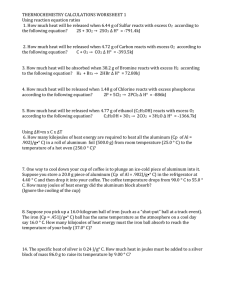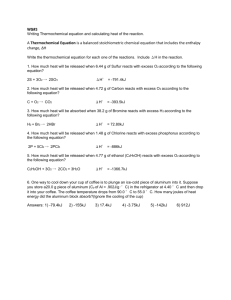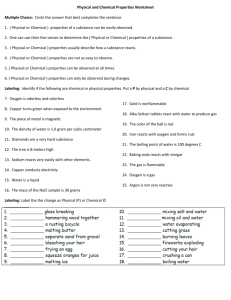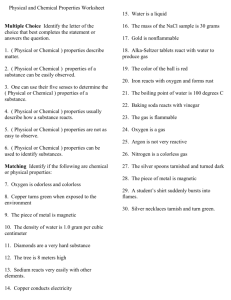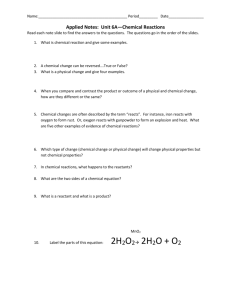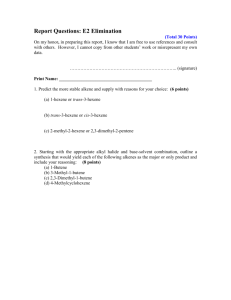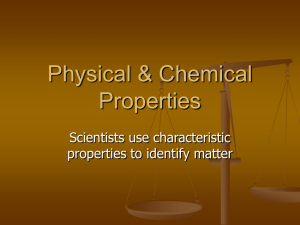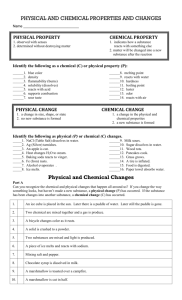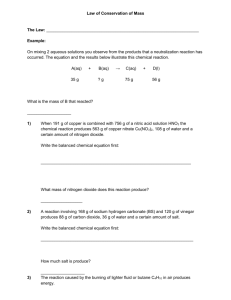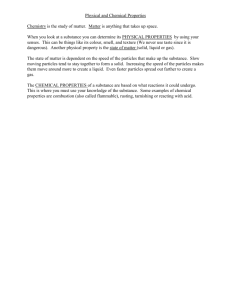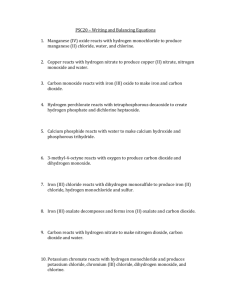Thermochemistry Calculations Worksheet
advertisement
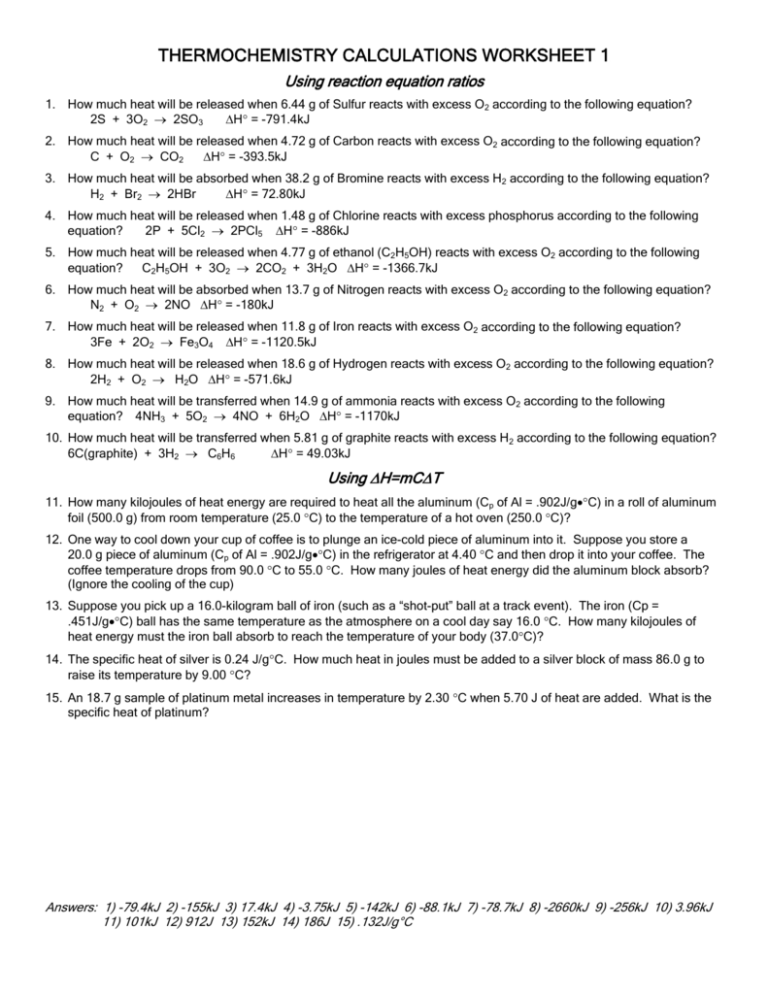
THERMOCHEMISTRY CALCULATIONS WORKSHEET 1 Using reaction equation ratios 1. How much heat will be released when 6.44 g of Sulfur reacts with excess O2 according to the following equation? ∆H° = -791.4kJ 2S + 3O2 → 2SO3 2. How much heat will be released when 4.72 g of Carbon reacts with excess O2 according to the following equation? C + O2 → CO2 ∆H° = -393.5kJ 3. How much heat will be absorbed when 38.2 g of Bromine reacts with excess H2 according to the following equation? ∆H° = 72.80kJ H2 + Br2 → 2HBr 4. How much heat will be released when 1.48 g of Chlorine reacts with excess phosphorus according to the following equation? 2P + 5Cl2 → 2PCl5 ∆H° = -886kJ 5. How much heat will be released when 4.77 g of ethanol (C2H5OH) reacts with excess O2 according to the following equation? C2H5OH + 3O2 → 2CO2 + 3H2O ∆H° = -1366.7kJ 6. How much heat will be absorbed when 13.7 g of Nitrogen reacts with excess O2 according to the following equation? N2 + O2 → 2NO ∆H° = -180kJ 7. How much heat will be released when 11.8 g of Iron reacts with excess O2 according to the following equation? 3Fe + 2O2 → Fe3O4 ∆H° = -1120.5kJ 8. How much heat will be released when 18.6 g of Hydrogen reacts with excess O2 according to the following equation? 2H2 + O2 → H2O ∆H° = -571.6kJ 9. How much heat will be transferred when 14.9 g of ammonia reacts with excess O2 according to the following equation? 4NH3 + 5O2 → 4NO + 6H2O ∆H° = -1170kJ 10. How much heat will be transferred when 5.81 g of graphite reacts with excess H2 according to the following equation? ∆H° = 49.03kJ 6C(graphite) + 3H2 → C6H6 Using ∆H=mC∆T 11. How many kilojoules of heat energy are required to heat all the aluminum (Cp of Al = .902J/g•°C) in a roll of aluminum foil (500.0 g) from room temperature (25.0 °C) to the temperature of a hot oven (250.0 °C)? 12. One way to cool down your cup of coffee is to plunge an ice-cold piece of aluminum into it. Suppose you store a 20.0 g piece of aluminum (Cp of Al = .902J/g•°C) in the refrigerator at 4.40 °C and then drop it into your coffee. The coffee temperature drops from 90.0 °C to 55.0 °C. How many joules of heat energy did the aluminum block absorb? (Ignore the cooling of the cup) 13. Suppose you pick up a 16.0-kilogram ball of iron (such as a “shot-put” ball at a track event). The iron (Cp = .451J/g•°C) ball has the same temperature as the atmosphere on a cool day say 16.0 °C. How many kilojoules of heat energy must the iron ball absorb to reach the temperature of your body (37.0°C)? 14. The specific heat of silver is 0.24 J/g°C. How much heat in joules must be added to a silver block of mass 86.0 g to raise its temperature by 9.00 °C? 15. An 18.7 g sample of platinum metal increases in temperature by 2.30 °C when 5.70 J of heat are added. What is the specific heat of platinum? Answers: 1) -79.4kJ 2) -155kJ 3) 17.4kJ 4) -3.75kJ 5) -142kJ 6) -88.1kJ 7) -78.7kJ 8) -2660kJ 9) -256kJ 10) 3.96kJ 11) 101kJ 12) 912J 13) 152kJ 14) 186J 15) .132J/g°C
